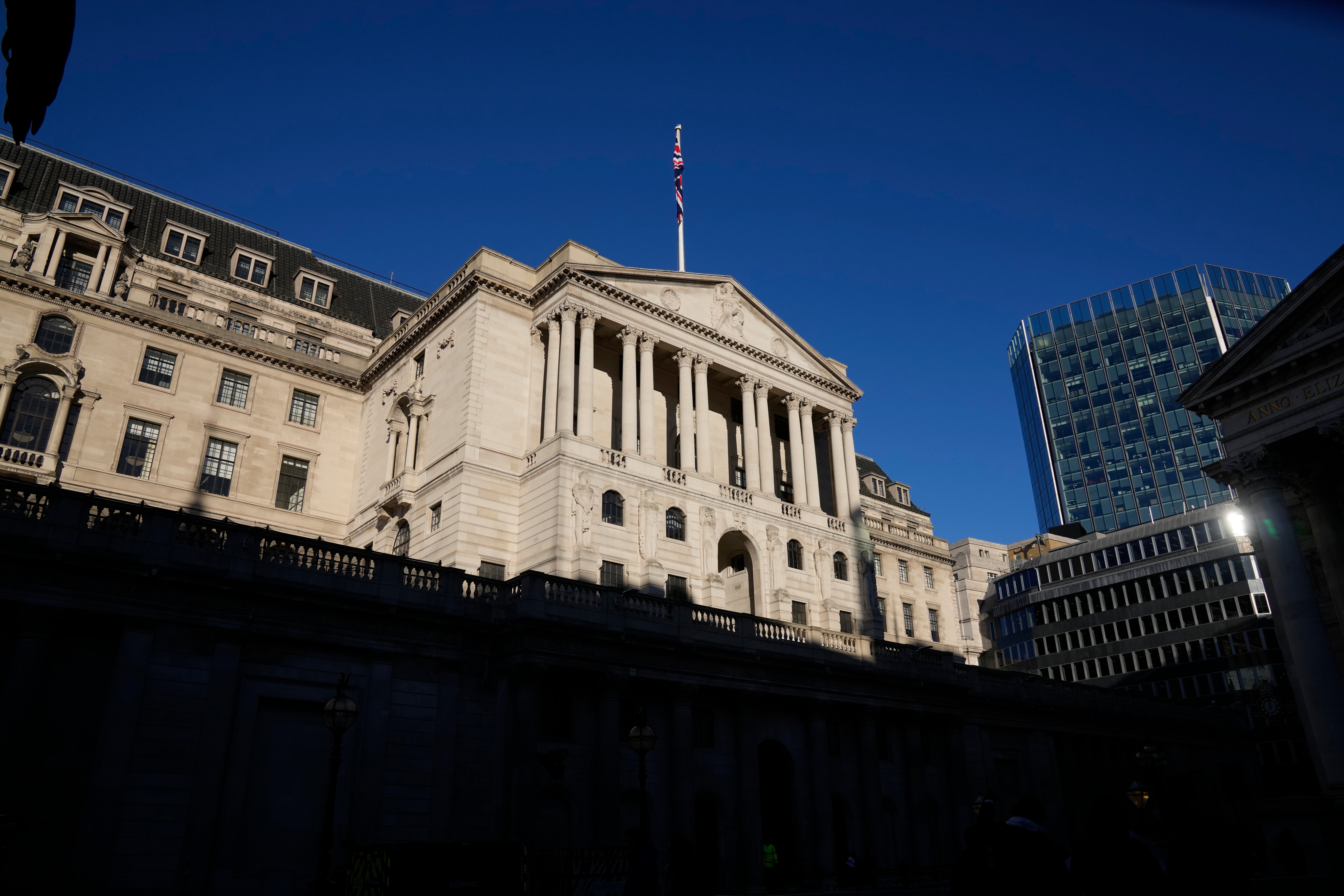Bank of England expected to wait for more evidence that inflation is under control before rate cut
The Bank of England is expected to maintain interest rates at a 16-year high of 5.25% Thursday, but a cut wouldn’t be a huge surprise as inflation falls from multi-decade highs

Your support helps us to tell the story
This election is still a dead heat, according to most polls. In a fight with such wafer-thin margins, we need reporters on the ground talking to the people Trump and Harris are courting. Your support allows us to keep sending journalists to the story.
The Independent is trusted by 27 million Americans from across the entire political spectrum every month. Unlike many other quality news outlets, we choose not to lock you out of our reporting and analysis with paywalls. But quality journalism must still be paid for.
Help us keep bring these critical stories to light. Your support makes all the difference.
The Bank of England is expected to maintain interest rates at a 16-year high of 5.25% Thursday, but a cut wouldn't be a huge surprise as inflation falls from multi-decade highs.
The consensus in financial markets is that a majority of the bank's nine-member Monetary Policy Committee will hold off from voting for a cut — like the U.S. Federal Reserve last week — and will wait for more evidence that inflation is receding.
Headline inflation in the U.K. is down at an annual rate of 3.2%, its lowest level in two and a half years, but remains higher than the bank's 2% target.
Economists believe inflation fell further in April, possibly to below 2%, as a result of sharply lower domestic energy bills, which could prompt some rate-setters to vote for a cut. At the last policymaking meeting, only one member voted for a cut.
Economists think that policymakers, still concerned about stubbornly high levels of pay growth and higher prices in the crucial services sector, will wait until the summer before supporting a rate cut.
Philip Shaw, chief economist at Investec, said the trend on the committee is clear and that a second member will switch to the “easing camp” and vote for a cut.
“It seems unlikely though to be ready to bite the bullet just yet," he added.
The Bank of England, like the U.S. Fed and other central banks around the world, raised interest rates aggressively in late 2021 from near zero to counter price rises first stoked by supply chain issues during the coronavirus pandemic and then by Russia’s invasion of Ukraine.
Higher interest rates — which cool the economy by making it more expensive to borrow — have helped ease inflation, but they've also weighed on the British economy, which is barely growing.
The U.K.'s governing Conservative Party, which appears headed for a big electoral defeat later this year to the main opposition Labour Party, is hoping that interest rates start coming down soon, relieving the pressure on financially-stretched households, thereby helping to fuel an economic feelgood factor.
Subscribe to Independent Premium to bookmark this article
Want to bookmark your favourite articles and stories to read or reference later? Start your Independent Premium subscription today.